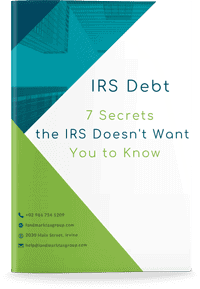How to File an IRS Tax and Penalty Appeal


Most taxpayers will agree that they would like to protest the IRS at face value — who wants to see their hard earned money disappear in such large quantities? While there are many arguments to be made about the benefits of taxes, there are times when appealing an IRS tax liability is actually necessary.
While the IRS can be a relatively efficient agency when it comes to following its own procedures, sometimes the agency slips up. It’s an institution run by real people, after all, and to err is human. That’s why there is an appeals procedure within the IRS — so that you can file an appeal request if you disagree with their decisions or actions.
Many taxpayers don’t understand their rights when it comes to the IRS, and the appeals process is one of those rights that benefits everyone. You can read all about the Taxpayer Bill of Rights here.
Let’s discuss the Office of Appeals and what you need to do if filing an appeal or protest is necessary in your case.
The Office of Appeals 101
These are the most common reasons a person would appeal to the IRS:
● They believe the IRS made an incorrect decision.
● They believe the IRS misinterpreted tax law.
● They believe that the IRS has misinterpreted facts, leading to an incorrect application of tax law.
● They believe the IRS is unjustly collecting or levying against them.
● They believe the underlying tax liability is wrong.
When you formally write into the Office of Appeals, the IRS calls this a “protest” or “appeal”. In most cases, the letter doesn’t go directly to the Office of Appeals. The appeal must be sent to the appropriate IRS address that is currently handling your tax case, such as the IRS Collections Division. The IRS will consider the appeal and forward it to the Office of Appeals for consideration, along with a copy of the case file. This action simply means that the IRS considers your appeal to be initially valid and timely, though it does not mean the IRS completely agrees with your protest at this point.
Savvy taxpayers will choose someone to help represent them when it comes to correctly preparing and submitting an appeal in a timely manner. This can be an Enrolled Agent (EA), CPA, or tax lawyer who is fully licensed to represent taxpayers in front of the IRS.
Filing Appeals and Protests
Most people will have to file a written protest that includes information such as your name, address, telephone number, appeal statement, a copy of the related tax letter stating the appealed information, the tax periods involved with the appeal, a list of disagreeable proposal items, the reasons you disagree, facts and documents supporting your position, any authority and citations that support your position, a penalty of perjury statement, and your signature, among other information. The IRS has its own forms that need to be prepared and timely submitted along with the aforementioned items in order to meet IRS criteria for a proper appeal. Moreover, certain IRS notices, letters and actions only allow a taxpayer to file an appeal during a certain timeframe, such as 30, 60 or 90 days. Taxpayers should check with their licensed tax relief professional for assistance in filing a timely appeal that meets IRS guidelines and criteria. Once a licensed tax representative has a required Power-of-Attorney form on file with the IRS, they are permitted to prepare a formal IRS appeal and sign it on your behalf. Once the IRS Appeals Office processes the appeal package, an employee called a Settlement Officer or Appeals Officer will make contact by mail and/or by phone to schedule the initial appeal hearing.
Get our Free Special Report: 7 Secrets the IRS Doesn’t Want You to Know!
Landmark Tax Group is a professional tax resolution firm that specializes exclusively in IRS and State back tax issues. Not only are we licensed Tax Relief Specialists, we are also former Senior IRS Agents who now serve the best interests of taxpayers like you – all we do is handle IRS and State Tax Relief matters, all day, every day.
If you owe back taxes and would like Landmark Tax Group to review your tax notices/letters for FREE, please contact us now for a No-obligation consultation. Speak directly to our former IRS Agents at (949) 260-4770.

